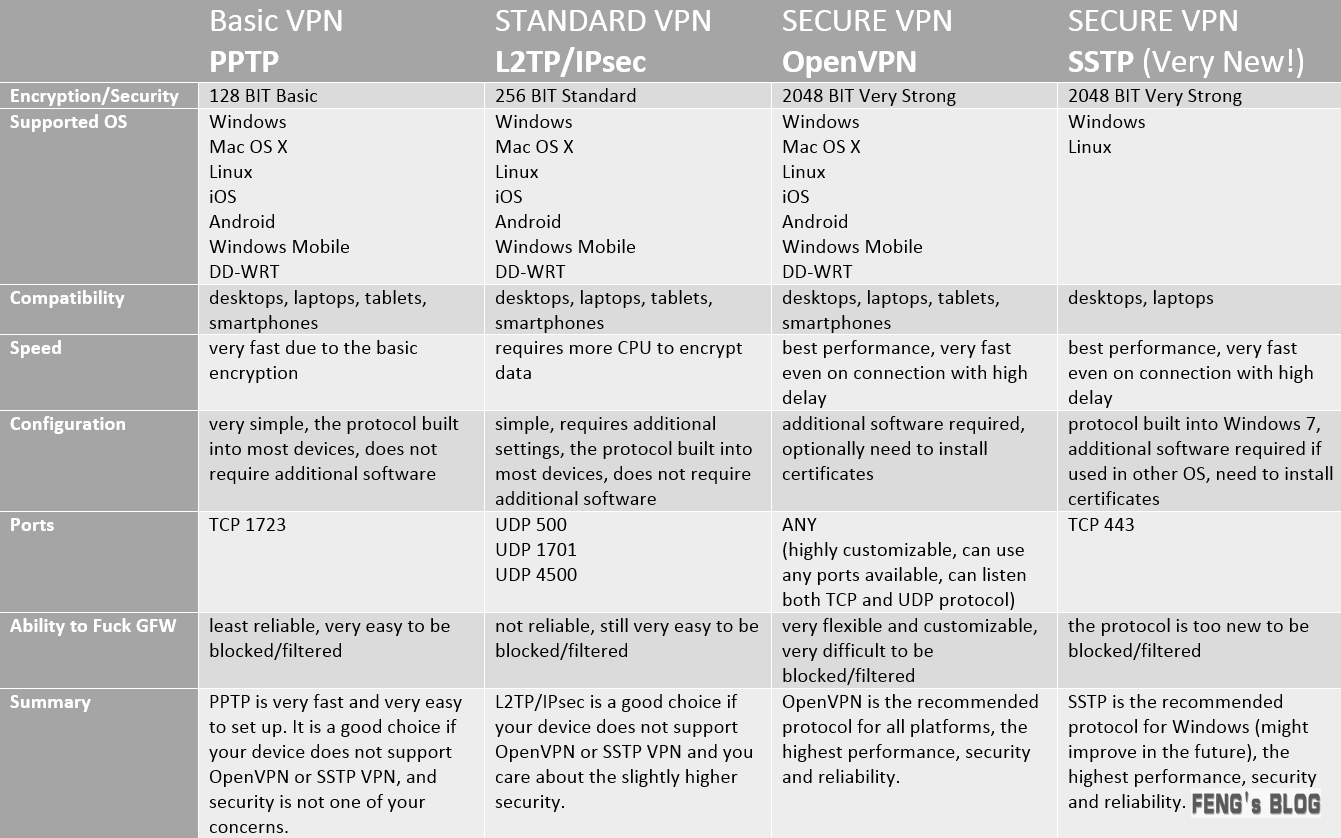Exploring VPN Protocols PPTP L2TP/IPSec SSTP And More
If you are looking for a secure and reliable way to connect to the internet, a virtual private network or VPN is a great choice. VPNs work by encrypting your internet traffic, making it impossible for anyone to intercept, monitor, or tamper with your data.

But with so many different VPN protocols available, how do you know which one to choose? In this post, we will introduce and compare five of the most popular VPN protocols: PPTP, L2TP, IPSec, OpenVPN, and SSTP.
PPTP
Point-to-Point Tunneling Protocol, or PPTP, is one of the oldest and most widely used VPN protocols. It was originally developed by Microsoft and is built into most modern operating systems, including Windows, macOS, and Linux. PPTP uses a 128-bit encryption key to protect your data, which is considered relatively weak by today's standards. However, it is still used by many people because of its ease of use and fast connection speeds.
Pros:
- Easy to set up and use
- Fast connection speeds
Cons:
- Weak encryption
- Prone to security vulnerabilities
L2TP
Layer 2 Tunneling Protocol, or L2TP, is another widely used VPN protocol. Unlike PPTP, L2TP does not provide encryption on its own. Instead, it is often used in combination with another protocol called IPsec (discussed later in this post) to create a secure VPN tunnel. L2TP is also supported by most modern operating systems and is generally considered more secure than PPTP.
Pros:
- Relatively easy to set up and use
- Generally more secure than PPTP
Cons:
- Can be slower than PPTP due to encryption overhead
- Can suffer from compatibility issues with some devices
IPSec
Internet Protocol Security, or IPSec, is a popular VPN protocol that provides strong encryption and authentication. IPSec can be used on its own or in combination with other protocols like L2TP to create a secure VPN connection. Unlike PPTP and L2TP, IPSec is not built into most operating systems, so it requires additional software or configuration to use.
Pros:
- Provides strong encryption and authentication
- Can be used with other protocols for added security
Cons:
- Can be difficult to set up and configure
- May require additional software
OpenVPN
OpenVPN is an open-source VPN protocol that is widely considered to be the most secure and flexible of all VPN protocols. It uses strong encryption and can be customized to fit a variety of different needs. OpenVPN is not built into most operating systems, so it requires additional software or configuration to use.
Pros:
- Provides strong encryption
- Highly customizable
Cons:
- Can be difficult to set up and configure
- May require additional software
SSTP
Secure Socket Tunneling Protocol, or SSTP, is a VPN protocol developed by Microsoft. It uses SSL/TLS encryption to provide a secure VPN connection similar to that used by websites for secure browsing. SSTP is built into most modern versions of Windows and is considered to be secure and reliable.
Pros:
- Built into most modern versions of Windows
- Uses SSL/TLS encryption for added security
Cons:
- Not as widely supported as other protocols
- May not work with some devices
Conclusion
Choosing the right VPN protocol is an important decision that will depend on your particular needs and circumstances. PPTP and L2TP are popular choices for their ease of use and fast connection speeds, while IPSec and OpenVPN are generally considered more secure. SSTP is a good choice for those using Windows, but may not work with other operating systems or devices.
Whatever your needs, it is important to choose a VPN provider that uses strong encryption and has a good reputation for privacy and security. With the right VPN protocol and provider, you can enjoy a fast, secure, and reliable internet connection wherever you go.




Post a Comment for "Exploring VPN Protocols PPTP L2TP/IPSec SSTP And More"